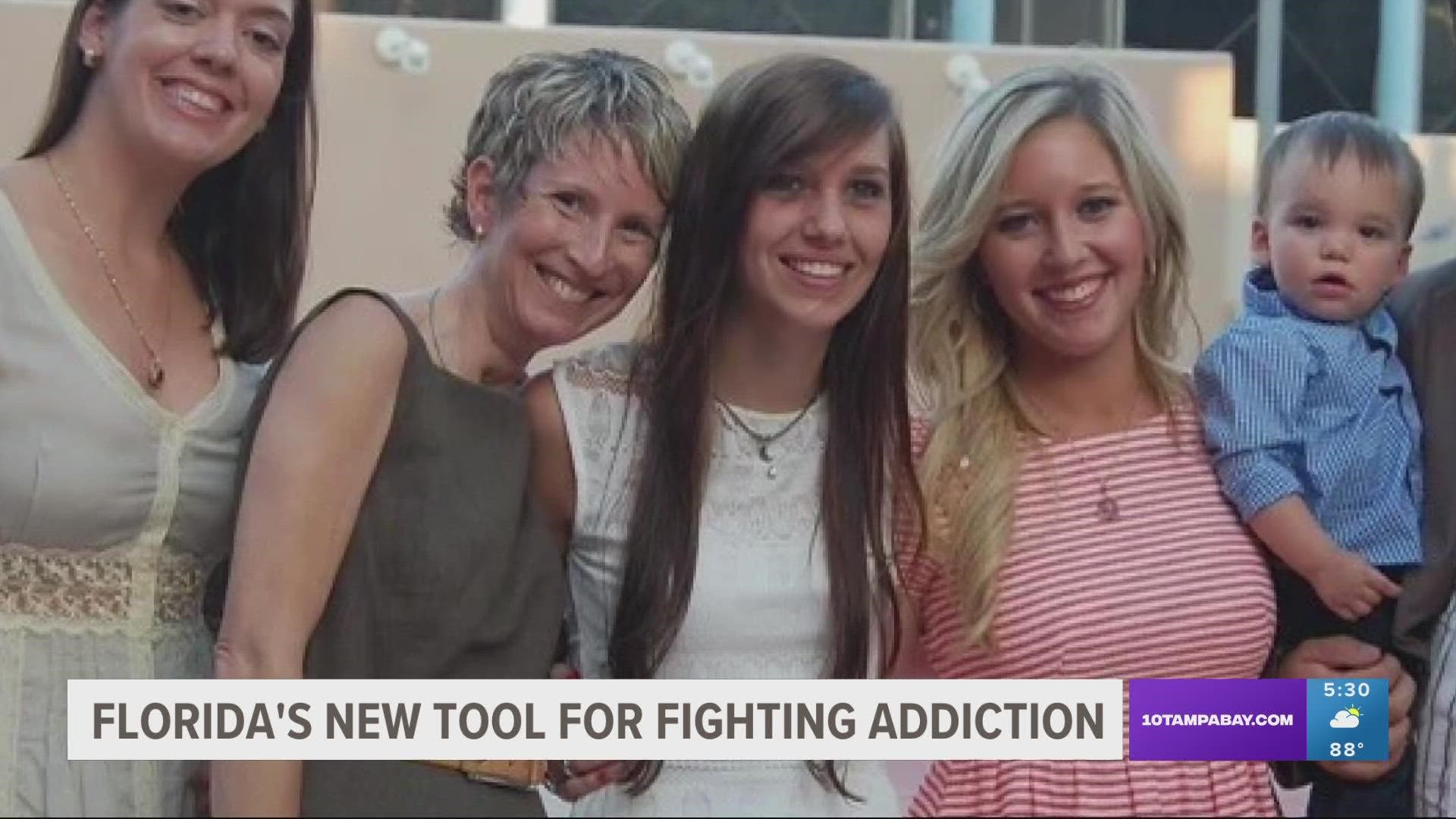TAMPA, Fla. — If your loved one came to you and said they needed help because they were struggling with addiction, what would be the first thing you do?
Maybe you'd call a doctor or start researching facilities on the internet but as it turns out, you'd probably get overwhelmed pretty quickly — and time is precious when someone is open and willing to accept help.
That's the idea behind ATLAS, which stands for Addiction Treatment Locator, Assessment and Standards Platform created by Shatterproof. It's Florida's new tool to help people struggling with addiction find a recovery or treatment facility.
Caroline Davidson with the ATLAS project said Florida is one of 10 states now using the online platform she described as, "A tool people can use to search for and compare facilities based on quality so we’re taking the guesswork out of finding the most appropriate treatment."
Recovery and rehabilitation are not a one-size-fits-all and when you factor in insurance, affordability, location and whether someone needs medication, withdrawal methods, or extra emphasis on physical and mental health — the entire process can feel daunting and overwhelming.
Florida Attorney General Ashley Moody was in Tampa last week urging Floridians to know the dangers of fentanyl and to seek treatment now if they've been dealing with addiction saying, "We have put together a resource where you can go, match your location, payment ability, the type of substance abuse treatment you will need and that is recommended."
Because there are no quality standards for addiction treatment facilities to follow, ATLAS helps filter out misinformation, schemes and false marketing.
The Tampa Bay region has some of the worst stats in the country when it comes to the opioid crisis with an overdose rate 50% higher than the country. According to LIVE Tampa Bay, three people die every day in the Tampa Bay area from an opioid overdose.
Jennifer Webb is the Executive Director of LIVE Tampa Bay. She believes a tool like ATLAS could have changed the path for her younger sister.
In 2013, Webb's 19-year-old sister, Allison confided in her about her addiction to oxycodone. Given Webb's own recovery journey and work in the addiction field, she thought she'd be able to find her sister what she needed.
"She called me. I was her phone call. I was the person she thought could find her the appropriate help so she could get her life back on track," Webb said.
It turned out it wasn't so simple and although her sister completed her 30-day in-patient treatment program, Webb felt lost again when it came time to figure out what Allison needed next.
Eventually, Allison relapsed and fell into grave despair. In December of 2013, Allison took her own life at the age of 19.
"We were running towards her, begging her to put the gun down as she took her life," Webb said. "As her suicide note had stated, she relapsed and was full of shame."
Now, Webb is committed to eliminating the shame and helping people understand the needs of someone battling addiction.
"The more steps we take to treat substance use disorder like other chronic health conditions, the more we’ll see stigma dissipating, the more we’ll see people reach out for help."
Even though ATLAS is only serving 10 states right now, anyone can take a free assessment to help decipher what type of treatment is right for you or a loved one.
10 Tampa Bay cares: Anyone experiencing a mental health crisis is urged to reach out for help. You can contact the Crisis Center of Tampa Bay at 211 or call 911. The National Domestic Violence Hotline can be reached 24/7 at 800-799-7233.
Anyone experiencing a mental health crisis can contact the National Suicide Prevention Lifeline at 1-800-273-8255.

